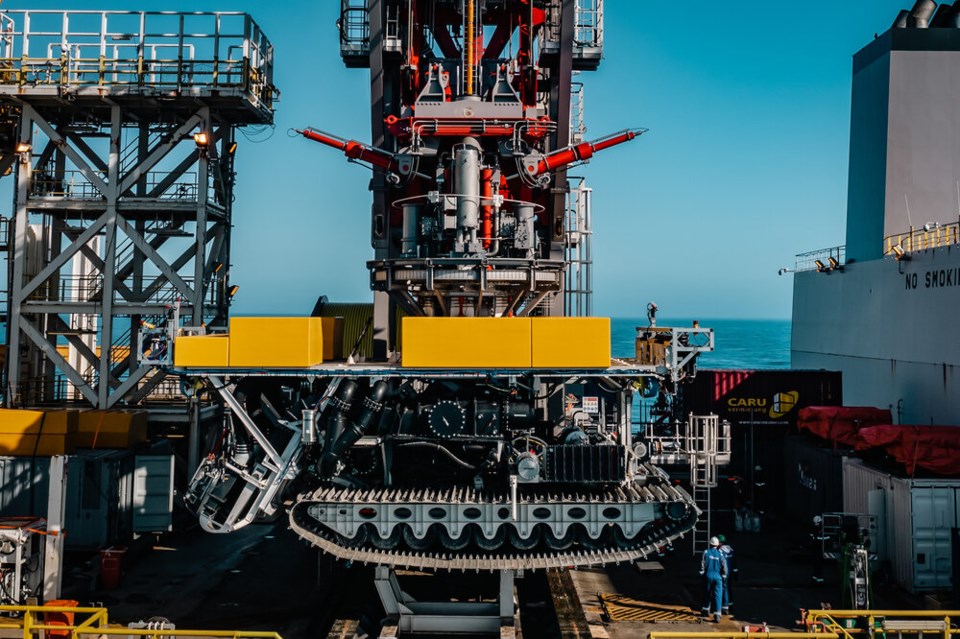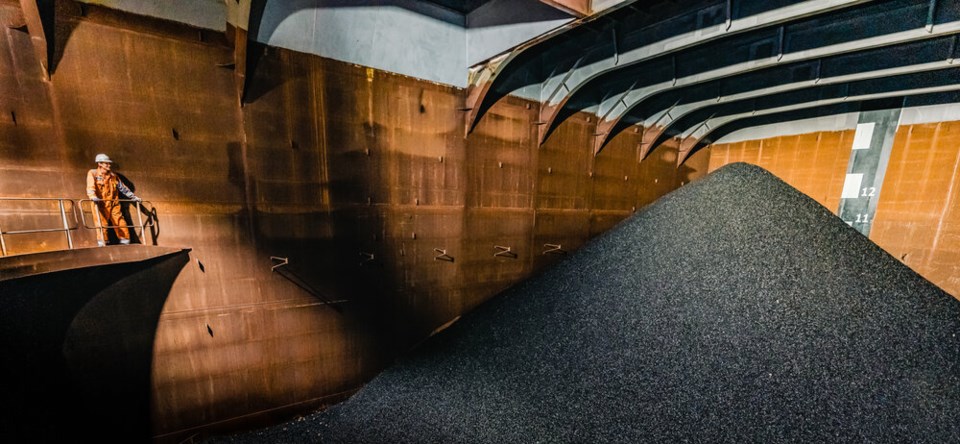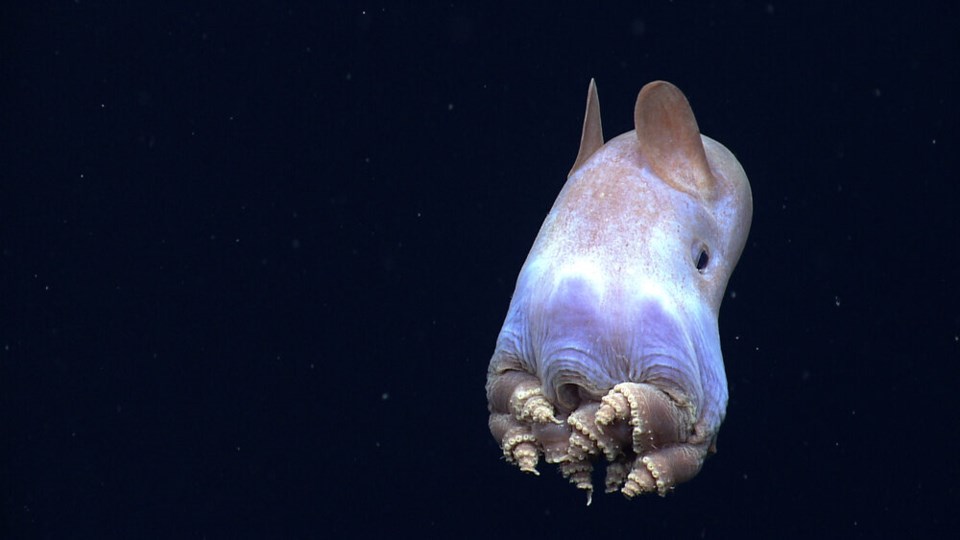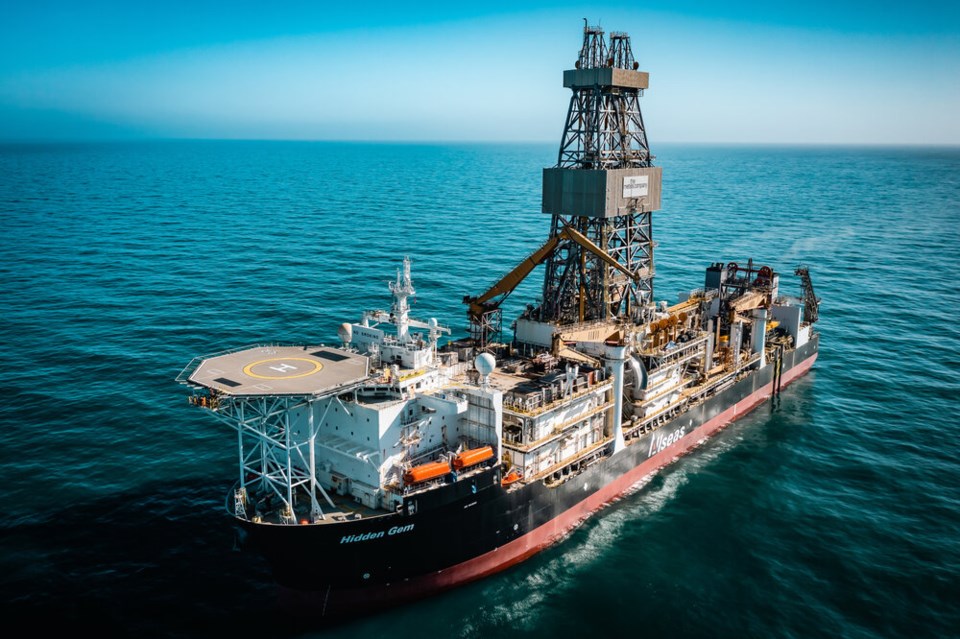U.S. President Donald Trump has issued an executive order to unilaterally open up mining of the world’s seabeds — a move that sets up a direct confrontation with several allies and opens a potential path for a Vancouver-based mining company to suck critical minerals off the sea floor.
The , handed down Thursday, comes less than a month after the The Metals Company said it was seeking U.S. approval to mine polymetalic nodules in a stretch of Pacific Ocean between Mexico and Hawaii.
President Trump’s order says it seeks to create a “robust domestic supply chain” and “counter China’s growing influence over seabed mineral resources.”
But by aiming to unleash U.S. access to offshore critical minerals, the Trump administration has turned away from decades of international diplomacy, largely negotiated through the International Seabed Authority (ISA) — a little known international body set up under the United Nations Convention on the Law of the Sea.
Last month, The Metals Company said it believes U.S. regulations offer a “clear and predictable route” to secure permits to mine in international waters. The strategy, it warned, also came with the risk of “political instability” as it came into conflict with the ISA.
'Violation of international law'
In March, after The Metals Company said it was turning to the U.S. regulatory approval, ISA Secretary-General Leticia Carvalho expressed “deep concern” that the company was attempting to circumvent the UN body’s exclusive mandate to regulate commercial exploitation of deep sea resources.
Carvalho said the ISA was the “only universally recognized legitimate framework” to oversee the commercial exploration and exploitation of deep sea resources — a “Common Heritage of Humankind,” as she described it.
“Any unilateral action would constitute a violation of international law” and directly undermine the fundamental principles of multilateralism, Carvalho said.

In response, The Metals Company CEO Gerard Barron slammed Carvalho, the ISA and member states for bowing to a faction of states allied with environmental groups who see the deep sea mining industry as their “last green trophy.”
While the ISA and member states reaffirm their commitment to multilateralism in public, Barron said “many of them acknowledged a stark reality in private: commercial industry is not welcome at the ISA.”
Barron said the United States — which has not ratified the UN Convention on the Law of the Sea — has had a fully developed regulatory regime to allow U.S. citizens to pursue the commercial mining of deep sea metals since 1989.
“It’s a regulator willing to engage with the applicants and give their application a fair hearing,” said the CEO at the time.
The latest critical mineral frontier?
Often the size of a potato, polymetalic nodules form layer by layer over millions of years as dissolved metals precipitate out of seawater around a sunken shark tooth, fossil or shard of rock.
The Metals Company says the metals — which include nickel, copper, cobalt and manganese — represent "a battery in a rock" that could provide a stable supply of metals to feed an electric vehicle fleet equivalent to all the cars currently on the road in the United States.
The company has been actively carrying out exploratory mining expeditions to the Pacific Ocean’s Clarion-Clipperton Zone (CCZ), an area where polymetallic nodules were discovered by British explorers more than 120 years ago.
In the past, collecting and raising the metals from 4,000 metres under the sea has proven technically challenging and too expensive to conduct commercially. The Metals Company says its latest deep sea trial — robotic vehicles that suck up the nodules off the ocean floor — shows its technology works.​

​The Metals Company said that it is seeking permit applications through U.S. law as part of agreements with two companies — Nauru Ocean Resources Inc. and Tonga Offshore Mining Limited — and with sponsorships from the governments of Nauru and Tonga.
Last year, the company’s board added Steve Jurvetson, a Silicon Valley investor known for backing companies like Tesla, SpaceX and Commonwealth Fusion Systems.
It also recently signed a deal with a Japanese company to smelt the nodules into nickel-copper alloy and silicate products.
Following the White House’s announcement Thursday, the value of The Metals Company’s stocks spiked 44 per cent. BIV reached out to the company for comment, but has yet to receive a response.
Company says 'no assurances it will work'
According to the March 27 filing with the U.S. Securities Commission (SEC), the company said it is in “the initial planning stages of this strategy” and that “there are no assurances” the strategy will work “in a timely manner, or at all.”
In its March SEC filing, the company itself acknowledged that collecting the nodules is “certain to disturb wildlife” and “may impact ecosystem function.”
The deep water environment also makes scientific monitoring difficult.
As a result, the company says it may not be possible to conclude that collecting the metals from the ocean floor causes any less harm to global biodiversity than land-based mining does.
As the filing put it, the impact to biodiversity “may never be, completely and definitively known.”

Several world leaders and environmental groups have warned the company’s moves have been reckless and risk damaging a sensitive ecosystem and ocean carbon pump still relatively unknown by scientists.
Over the last three years, 32 countries have publicly opposed rapid development of deep sea mining.
French President Emmanuel Macron has called for the practice to be banned — a country, that along with its dependents, has the largest exclusive economic zone in the world.
Some, like Canada and the United Kingdom, have called for a moratorium on the practice.
A long list of others have supported a precautionary pause on deep sea mining.



